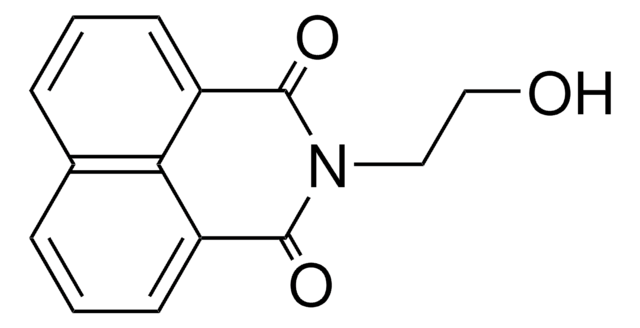All Photos(2)
About This Item
Empirical Formula (Hill Notation):
C12H7NO2
CAS Number:
Molecular Weight:
197.19
EC Number:
MDL number:
UNSPSC Code:
12352100
PubChem Substance ID:
NACRES:
NA.22
Recommended Products
Assay
99%
form
solid
mp
299-300 °C (lit.)
SMILES string
O=C1NC(=O)c2cccc3cccc1c23
InChI
1S/C12H7NO2/c14-11-8-5-1-3-7-4-2-6-9(10(7)8)12(15)13-11/h1-6H,(H,13,14,15)
InChI key
XJHABGPPCLHLLV-UHFFFAOYSA-N
Related Categories
Signal Word
Warning
Hazard Statements
Precautionary Statements
Hazard Classifications
Acute Tox. 4 Oral
Storage Class Code
11 - Combustible Solids
WGK
WGK 1
Flash Point(F)
Not applicable
Flash Point(C)
Not applicable
Personal Protective Equipment
dust mask type N95 (US), Eyeshields, Gloves
Certificates of Analysis (COA)
Search for Certificates of Analysis (COA) by entering the products Lot/Batch Number. Lot and Batch Numbers can be found on a product’s label following the words ‘Lot’ or ‘Batch’.
Already Own This Product?
Find documentation for the products that you have recently purchased in the Document Library.
Customers Also Viewed
Zhen Wu et al.
Small (Weinheim an der Bergstrasse, Germany), 14(40), e1802524-e1802524 (2018-10-12)
Organic luminescent materials with the ability to reversibly switch the luminescence when subjected to external stimuli have attracted considerable interest in recent years. However, the examples of luminescent materials that exhibit multiresponsive properties are rarely reported. In this work, a
Jiaojiao Liu et al.
Colloids and surfaces. B, Biointerfaces, 170, 656-662 (2018-07-10)
Highly ordered self-assembly of nanoparticles (NPs) in a large scale promises attractive potential in optical modulation of the NPs for illuminating, imaging and sensing applications. In this work, a type of multi-lamellar nanocomposite membranes composed of phospholipid multilayers and Si
Yan Guo et al.
Inorganic chemistry, 58(19), 13150-13160 (2019-09-21)
Mitochondrial DNA (mtDNA) is an attractive cellular target for anticancer agents in addition to nuclear DNA (nDNA). The cationic platinum(II) complex cis-[Pt(NP)(NH3)2Cl]NO3 (PtNP, NP = N-(2-ethylpyridine)-1,8-naphthalimide) bearing the DNA-intercalating moiety NP was designed. The structure of PtNP was fully characterized
Xiaoyuan Ji et al.
Nanoscale, 10(30), 14455-14463 (2018-07-20)
The development of biocompatible and fluorescent gene carriers is of particular importance in the gene-delivery field. Taking advantage of the unique optical properties (e.g., strong and robust fluorescence) of silicon nanoparticles (SiNPs), as well as the excellent biocompatibility of silicon
Our team of scientists has experience in all areas of research including Life Science, Material Science, Chemical Synthesis, Chromatography, Analytical and many others.
Contact Technical Service
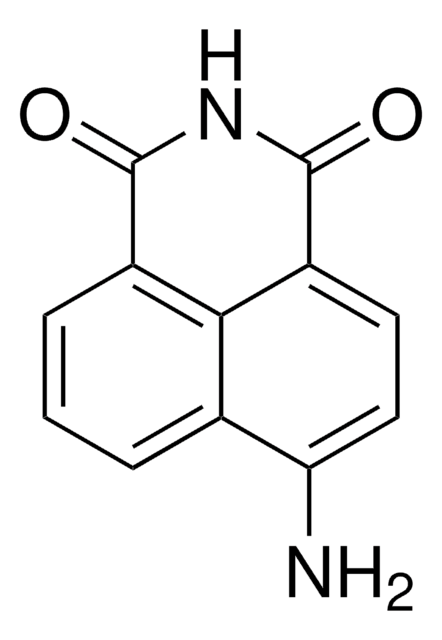

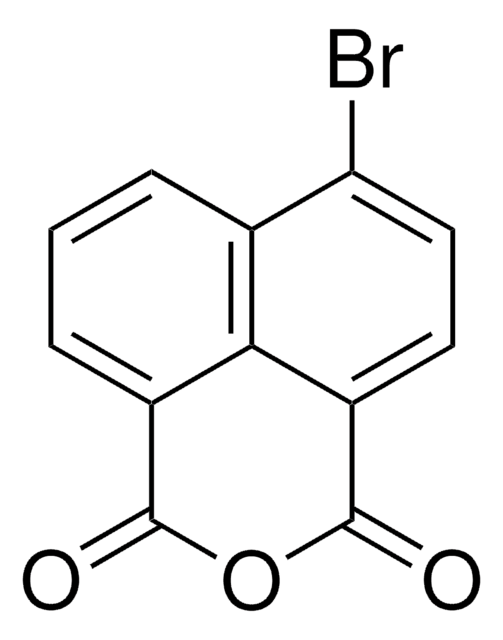
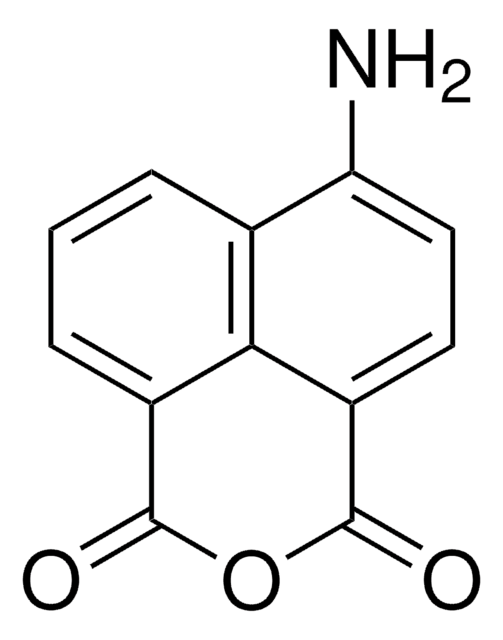
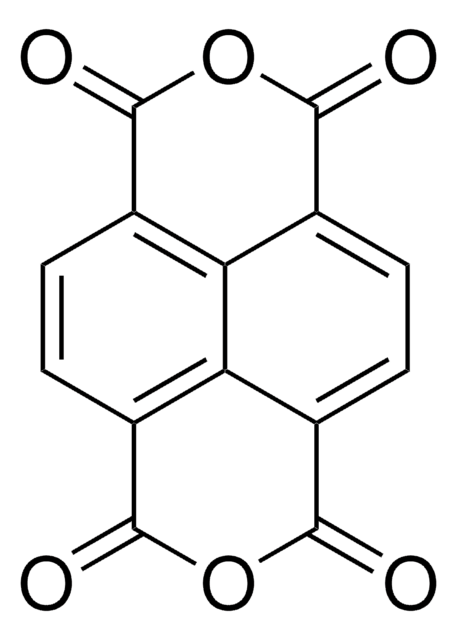
![1,8-Diazabicyclo[5.4.0]undec-7-ene 98%](/deepweb/assets/sigmaaldrich/product/structures/120/564/5b373e23-1624-489c-8efb-692de0f96ffb/640/5b373e23-1624-489c-8efb-692de0f96ffb.png)


